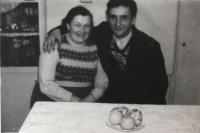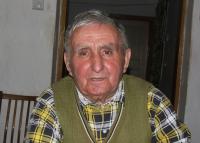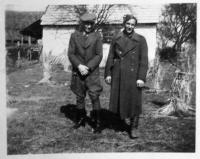At Dukla, they chased us like sheep, so many men died there in vain.

Stáhnout obrázek
Antonín Činka was born in Český Malín in the Volyně region to the family of a small independent farmer, and he is among the small group of his fellow citizens of Český Malín who survived the burning of the village by Nazi soldiers in 1943. Antonín Činka had two siblings: one brother, who died during the burning of the village together with his parents, and a stepsister, who was also saved. Mr. Činka‘s salvage came by coincidence, when German soldiers ordered him and some other young boys to lead the cattle out of the village. In 1944 he joined the Czechoslovak army, where he served in the sapper unit. His first combat experience came at Dukla; After several days of fighting in the Slovak territory, Mr. Činka was hit by a grenade splinter. He was hospitalized in the military hospital in Lvov; after his recovery he was transferred to the artillery division. The end of the war found him in Boskovice. After the war Mr. Činka settled in Nový Malín in the Šumperk region, where he worked in agriculture and where he has been living ever since.


